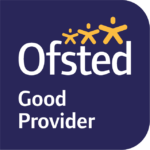- 0191 518 5595
- enquiries@endeavouracademy.co.uk
- Follow Us
Menu
A carefully planned and structured curriculum is the foundation upon which excellent learning and development is built. At Endeavour Academy we believe our curriculum has the attributes to deliver this.
The curriculum is carefully planned to ensure that content is thoroughly revisited so that learning ‘sticks’.
Whilst it undoubtedly prepares students excellently for external examinations there is a strong emphasis through the various elements on developing:
Our curriculum is constructed on the following principles to support the above; namely that:
We acknowledge that prior to admission, many students may have missed a substantial amount of school due to poor attendance. We apply interventions to assist recovery of lost learning including scheduled one to one, small group and online facilities.
The teaching of all subjects within the curriculum is fully compliant with our duties under the Equality Act 2010 and Special Educational Needs and Disability Regulations 2014 as exemplified in our Equality and Diversity statement and objectives, the Academy SEND Policy and reported through the SEND Information Report.
Please see the curriculum statement overview Curriculum Statement Overview
English at Endeavour Academy harnesses the creativity of our students and removes the shackles from their imagination. We explore a range of fiction and non-fiction texts that encourage genuine intrigue.
This term in English Language, there has been a focus on crime and punishment. Students have explored the different forms of punishment used in contrasting time periods. We have analysed writer’s methods and summarised the similarities between the writer’s perspectives on forms of punishment, incorporating textual references and inferences. Furthermore, students have continued with the theme of crime and punishment, debating a topic that polarises opinion: capital punishment. Students were able to articulate their viewpoint and formulate counter arguments to opposing perspectives.
Students study a rich and challenging curriculum. From engaging with ideas from a wide variety of texts to opportunities for self-expression and creativity in both spoken and written contexts, studying English nurtures self-expression and reflective thought. Students will encounter a range of literary genres and forms, ranging from Jacobean drama and courtly love poetry to a whole host of non-fiction diaries, essays, letters and autobiographies. We take a cross-curricular approach, encouraging students to think about the social, political and historical context alongside developing their own voice. As well as following the curriculum, students will be encouraged to read for pleasure, experiencing a diverse range of literature as a platform for exploring new ideas, developing critical thinking skills and learning more about the world around them.
Maths is a core subject and as such is studied by every student in the academy. Maths is an important part of daily life where qualities that are used in mathematics can be applied. Such as abstract or special thinking, critical thinking, creativity, reasoning and problem solving. Mathematics can even promote effective communication skills used in daily life.
Our curriculum is based on the national programmes of study and lessons are accessible to all students in the class to create opportunities and build familiarity and accuracy in techniques and to allow students to use their skills in everyday life. We cover a variety of topics that allow students to excel in their learning in different fields. Students know that when they come to lessons, they will be entering a positive environment for learning where they learn new techniques and challenges are accepted
At Endeavour Academy we believe that fostering an understanding of the world around us is a vital part of a young person’s development and education. As the last couple of years in particular have taught us, science is fast-changing and vital to our well-being. It is important that young people develop an appreciation of the relevance of science in society and the everyday in preparation for life in an increasingly scientific and technological world.
Our main aim is to encourage students to develop ideas and beliefs and be able to justify their thoughts and opinions. We aim for them to leave Endeavour with the skills to verbalise and justify their beliefs, to be able to understand other perspectives and recognise the importance of tolerance, respect, individual liberty, and democracy. We recognise the importance of the British Values and work hard to make sure our learners do too.
Financial education is a programme of study that aims to equip young people with the knowledge, skills, and confidence to manage their money well. In September 2014 it became a statutory requirement for maintained schools in England to teach financial education in mathematics and Citizenship, making it part of the curriculum across the UK.
The shift towards an increasingly cashless society, and more financial products and services than ever before, is making it more difficult for young people to navigate their personal finances.
Students learn about becoming responsible borrowers and sensible savers, and leave school with the skills and appreciation of the need for financial planning throughout their life. Lessons prepare students through the development of core skills; critical analysis and evaluation, verbal communication (through classroom discussion) and written communication.
You can download all of our curriculum statement documents below using the links:
English Language Curriculum Statement >>
English Literature Curriculum Statement >>
Money & Finance Curriculum Statement >>
Personal Development Statement >>

A Free School providing, safe, supportive care for young people experiencing social and emotional issues in mainstream education.